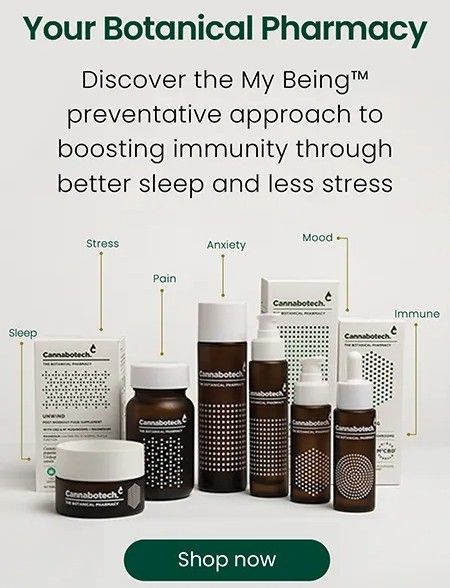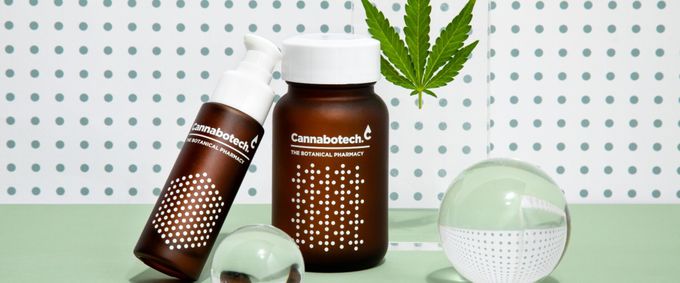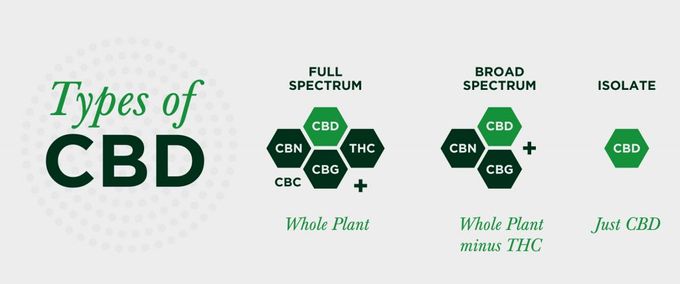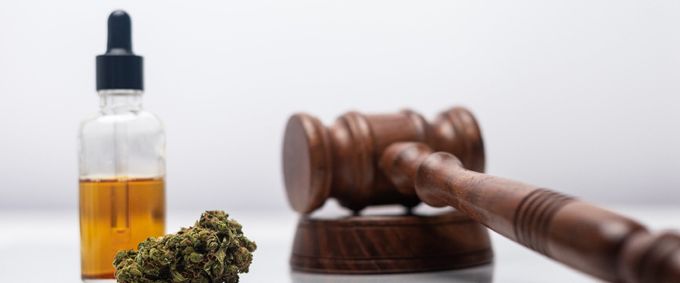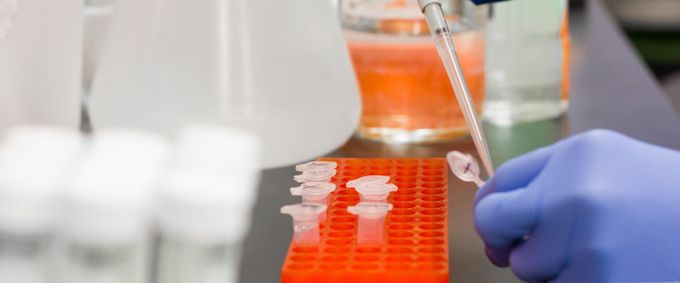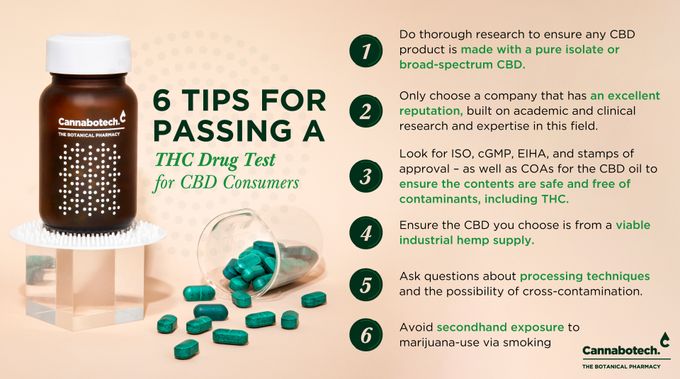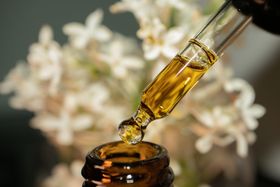THC Vs CBD: How To Avoid A Positive Drug Test?
Updated September 20, 2023.
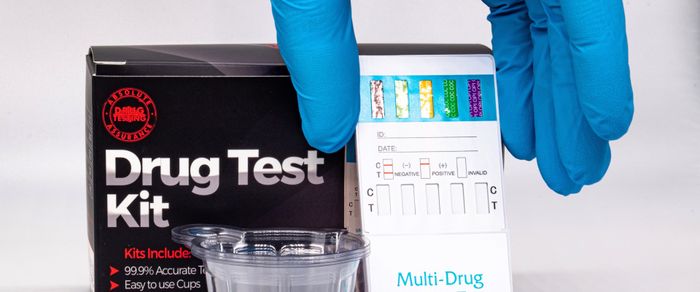
You’ve done your research and you love the idea of supplementing with cannabidiol (CBD).
Congratulations!
This decision could be one of the best you’ve made. But there is a worrying niggle bubbling in the back of your mind… Could taking a CBD product cause you to fail a tetrahydrocannabinol (THC) drug test? To understand the answer, we need to talk about THC vs CBD.
When it comes to the word marijuana, there are many misconceptions. Like any substance that has long remained taboo, certain images form in the mind. With now frequent drug tests at work and on the road, false assumptions have escalated. But not all compounds associated with cannabis deliver psychoactive outcomes and so not all are illegal.
THC vs. CBD: Can you fail a THC drug test by using CBD?
We need to consider the compound that a THC drug test looks for: tetrahydrocannabinol. As the name suggests, cannabidiol is different. It’s the THC vs CBD discussion that offers insights that will ease your mind. Let’s take a look…
What is CBD?
Cannabidiol is one compound contained within the cannabis plant. Unlike THC, it does not contain psychoactive properties.
This natural powerhouse has been shown to ease pain, reduce inflammation and the diseases it triggers or worsens, and provide protective benefits for the nervous system.
What does CBD have to do with hemp?
Cannabis, marijuana and hemp are often uttered interchangeably. But, as these terms do not mean the same thing it is important to understand the correct usage. This way you can make an informed decision. So, what is hemp?
As this statement implies, CBD comes from hemp.
To fit the hemp classification in the UK, a cannabis plant must not contain more than 0.2% tetrahydrocannabinol (THC).
The 3 types of available cannabidiol (CBD)
There are three types of CBD available: full-spectrum CBD, CBD isolate, and broad-spectrum CBD. What is the difference?
- Full-spectrum CBD: Full-spectrum CBD contains a wide variety of cannabis plant chemicals including cannabinoids, essential oils, terpenes, and THC. Because it contains THC, it may trigger a positive THC drug test. This would depend on the quantity you consume, your metabolism and your luck, but it is a theoretically possible consequence.
- CBD isolate: As the definition implies, CBD isolate refers to the presence of CBD alone. During manufacture, other cannabinoids, flavonoids and terpenes are removed. As CBD is not psychoactive, its isolate is free from mind-altering effects.
- Broad-spectrum CBD: Broad-spectrum CBD can be thought of as the middle ground between full-spectrum and isolate. Involving the removal of THC, yet retaining important compounds including CBD. The mix of compounds is thought to harness synergistic effects without the risk of a failed THC drug test.
How to choose a legal CBD product
The CBD market has exploded in recent times. With the massive, rapid uptick, regulation and its enforcement are struggling to catch up. The result is products on the shelves that contain no CBD and yet others that may contain more THC than the law allows; levels that may trigger a positive drug test.
So, carefully choosing the right company to supply your CBD is essential. For the sake of your health, licenses, and job; you must make the correct decision. This does not make CBD a risky choice, quite the contrary. CBD products have been scientifically proven to be profoundly beneficial.
You merely need the right facts to ensure that you have chosen CBD that is both trustworthy and appropriate for your needs.
We comply with local laws for CBD hemp extract, which dictates that legal CBD can only contain negligible trace amounts of THC up to 0.2%.
We rigidly adhere to the recommendations of the
- Medicines and Healthcare Products Regulatory Association (MHRA)
- Cosmetic, Toiletry, and Perfumery Association (CTPA)
- Food Standards Agency (FSA) (including registration for novel food ingredients)
Yes, CBD must be registered as a novel food since it has not been known as a ‘food’ up until now in the UK.
In short, you don’t need to stress about THC vs CBD, or worry about the potential for inadvertent exposure to tetrahydrocannabinol. You can simply know your products are safe and effective.
How do cannabis drug tests work?
As THC is the compound banned by law, this is what a cannabis drug test aims to detect. If THC is detected, a test is deemed positive. If not, a test is deemed negative.
While simplistic, imagine studying a WordFind puzzle in search of the term, tetrahydrocannabinol. If you see it, tick; that’s a positive result! If not, the result is negative.
The level of detection for a positive THC test is given as 50ng/mL.
Types of THC drug tests
There are a range of ways to detect the presence of THC. Four common tests include urine, hair, blood and saliva.
- Urine: A THC urine test is a popular option because they are affordable, quick and easy to administer. A few drops of urine placed on a testing strip will provide a result within minutes.
- Hair: Because a THC hair test requires that a sample be sent to a laboratory, this test is often reserved for legal matters and evidence. Results take longer; around three days depending on the lab.
- Blood (plasma): As blood tests are minimally invasive and also take days to determine an outcome these, too, are often reserved for legal matters. The result, again depending on the lab, will take around three days.
- Saliva: As with urine testing, saliva testing delivers fast and convenient results, at affordable rates. As such, they are a popular choice.
The reasons you could fail a cannabis drug test when using a CBD product
As mentioned, a cannabis drug test detects THC, not CBD. That means if only CBD is present (as is the case with products that contain only CBD isolate), it is impossible to fail at THC test. Why Again, we come back to the THC vs CBD discussion; that THC and CBD are different compounds.
But, as mentioned, regulation and understanding within the UK is still catching up. This makes it vital to understand where and how it’s possible to run foul of the law.
The risk list includes:
- Too much THC: Using a product that contains a significant amount of THC (whether accidental or intentional) The minimal legal THC limit in CBD is 0.2%, virtually indetectable. Metabolism, weight, frequency of consumption, and other biological factors can contribute to failing a THC-drug test, although quite rare in this case.
- Cross-contamination: A mislabeled product could cause cross-contamination with THC
- Inhaling or ingesting THC: Exposure to first or secondhand use of a product containing THC like marijuana flowers or oil.
Our products are safe and will not cause you to fail a THC drug test. But you should know how to make effective, legal decisions that benefit your life.
Topical versus internal use: Is there a difference in risk?
Because of the way that the body processes cannabinoid compounds, there is a difference between products applied topically, to the skin, and those ingested or injected.
- Ingestion delivers a compound into the depths of your body, where it can gain access to your bloodstream and so the vast vessel superhighway of your body.
- Topicals are local (on the surface of the skin). This results in negligible risk.
NOTE: Both our topical non-transdermal products and internal products use CBD isolate only.
The Takeaway
When it comes to a cannabis drug test, the question is always one of THC vs CBD. If a product contains tetrahydrocannabinol, you will likely fail. This is what the drug test is designed to detect. When you consume or apply a cannabidiol product, the CBD will not trigger a positive result. It is cross-contamination or the addition of THC that may cause a problem.
To protect yourself opt for only high-quality, pure products that contain CBD isolate from a reputable company. Then you can enjoy the many benefits of cannabidiol without the fear of failing a THC drug test.



